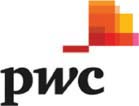COVID-19 and its impact on VAT partial exemption

For most partly exempt businesses, the VAT tax year ends in March, April or May. Many will therefore be preparing to calculate annual adjustments for the 2021 tax year-end or indeed will have already undertaken this exercise.
Those affected by COVID-19 may have experienced protracted periods where their normal trading pattern has been significantly distorted, so that methods based on turnover, transaction count, headcount etc. may be adversely affected and therefore not represent the true reality in terms of how costs are consumed for input VAT recovery purposes. As such, the impact of COVID-19 may therefore represent an opportunity or risk for those that are partially exempt for VAT purposes.
With that in mind, at the end of March, in Revenue & Customs Brief 4 (2021), HMRC announced that, for businesses that have been affected by COVID-19, it will be using an accelerated process (requests to be sent to the email address: PESMcovid19@hmrc.gov.uk) to consider proposals for COVID-19 related changes to partial exemption special methods (“PESMs”), and where appropriate they will be approved swiftly.
For those that have already undertaken this exercise (principally those with a 31 March 2021 year-end) HMRC’s comments concerning retrospection will be a welcome announcement, in particular the potential to exceptionally backdate a method beyond the beginning of the tax year in which the proposal is made.
Before detailing the changes which are required to be considered as part of HMRC’s announcement, an additional point to note is for those businesses also affected by the changes to the Value Added Tax (Input Tax) (Specified Supplies) Order (SSO) 1999, which came into effect following the UK’s exit of the EU, as this may allow for any additional benefit to those affected.
The SSO allows for input VAT recovery on costs directly associated with the making of certain VAT exempt supplies such as financial services, where the recipient of those supplies is outside of the UK.
That being said, those in this space should be mindful that HMRC may not accept retroactive proposals unless it can be shown that they were necessitated by COVID-19 disruption, rather than the changes which have been necessitated as a result of the SSO.
Businesses using a PESM
As is normal, HMRC requires all PESM requests to be accompanied by the usual ‘fair and reasonable declaration’ for PESMs, and also in this case will have to be satisfied that the proposal is intended only to address COVID-19 issues.
For affected businesses which anticipate returning to a pre-pandemic position, HMRC states that it is likely to accept proposals using representative income streams from previous tax years to obtain a fair and reasonable recovery rate. Where costs relate to a planned activity that has been delayed due to COVID-19, projected income from the activity supported by business plans or similar commercial evidence may be accepted as an appropriate method of apportionment.
As regards time limits and retrospection, HMRC proposes to set a time limit stating when the PESM will revert to the previous calculation with the default time limit of one tax year, subject to any further request to continue the changes into a second tax year if that should prove necessary.
HMRC will only allow changes to partial exemption methods to be applied retrospectively beyond the beginning of the tax year in which the proposal and supporting declaration are received in exceptional circumstances, but HMRC confirms that COVID-19 is an “exceptional circumstance” and meets the criteria for retrospective approval.
Importantly, where HMRC considers that there is a significant risk that the remainder of the existing PESM will yield an overall result which is not fair and reasonable, HMRC may subject the proposal to further examination.
Those submitting a proposal should therefore be mindful that HMRC will apply normal scrutiny to method requests where it perceives a risk that the accelerated process is being used to increase recovery for businesses whose activities have not been directly affected by COVID-19.
Businesses using the standard method
Businesses using the standard method are being encouraged by HMRC to use the Standard Method Override (SMO) rather than requesting a PESM. However, those traders need to be aware that the SMO is subject to de minimis limits. If the difference therefore between the standard method recoverable input VAT and the SMO result is less than £50,000, or less than 50 percent of the residual input VAT and £25,000, the SMO does not apply. Should that be the case, the business should still be able retrospectively to apply for a temporary PESM based on the SMO methodology. In that case, the de minimis limits should not apply.
Capital Goods Scheme
As regards the Capital Goods Scheme (CGS), the same accelerated process will be available to businesses. A request for a change to the method is likely to be accepted where:
- there is a PESM in place and there has been a temporary change of use of the CGS item as a consequence of COVID-19, and the intention is to revert to the original use as soon as possible after the pandemic ends; or
- an existing CGS methodology is in place and becomes unreasonable, e.g., because no income arises from the capital item in a tax year.
Where the change of use is planned to continue after the pandemic ends, HMRC considers that the ‘new’ use should provide the correct recovery for the pandemic-impacted tax year and there should be no need for a change to the existing CGS method.
Credited sales
Where planned supplies have been prevented by COVID-19, for example the cancellation of a conference or event, ordinarily an adjustment to the supply values used in outputs-based partial exemption calculations would be necessary to reflect the refunds made to the customers. HMRC states that requests not to make an adjustment to the value of supplies for such refunds will be considered sympathetically.
Michael McNeill is an Indirect Senior Manager at PwC Belfast

